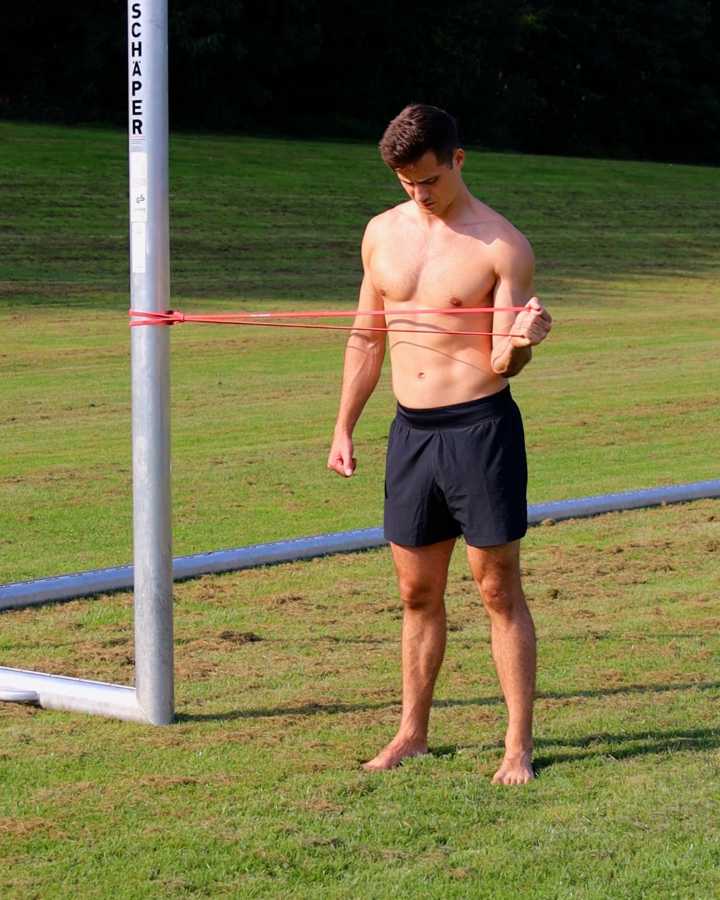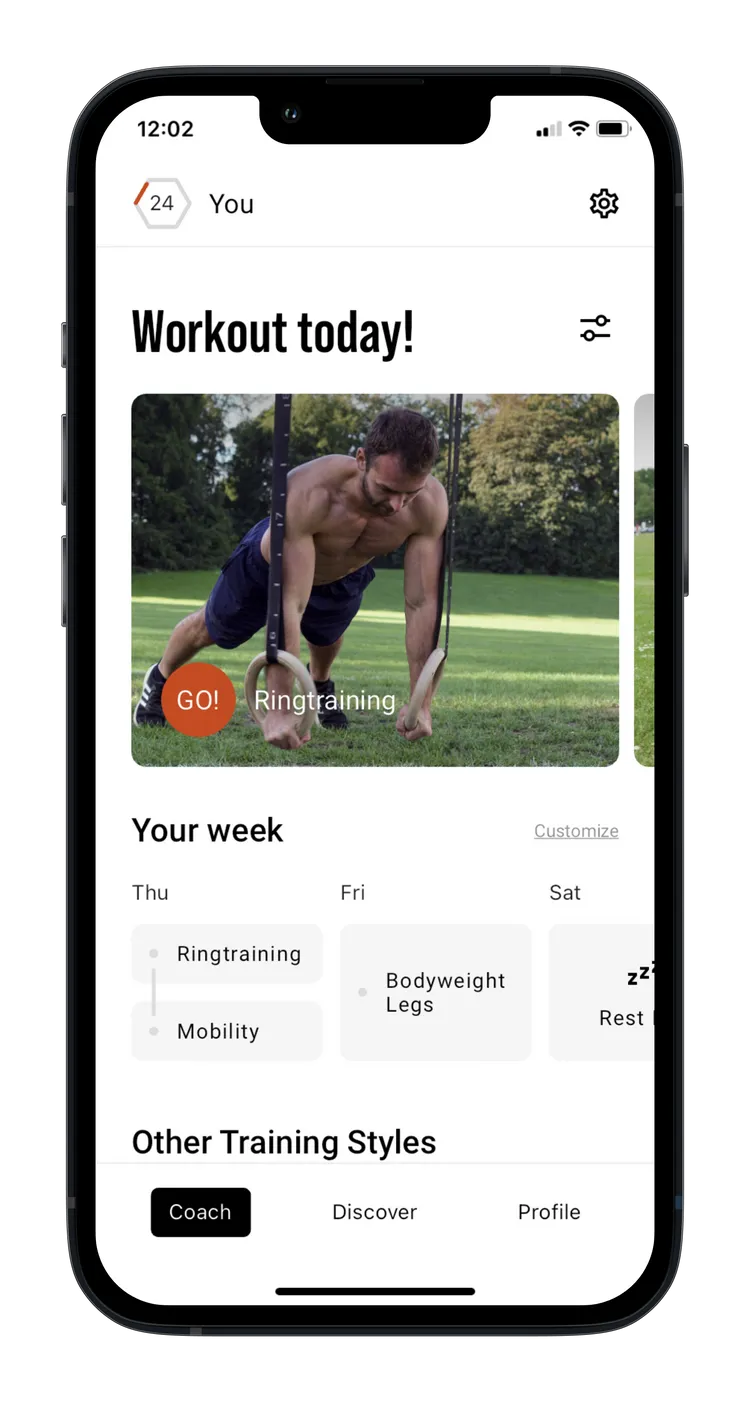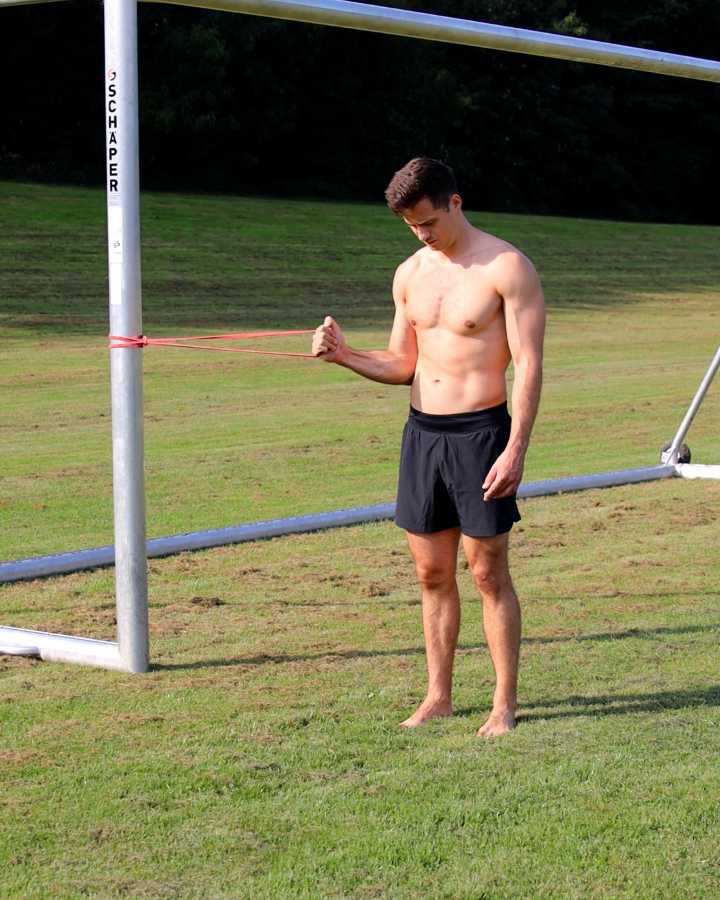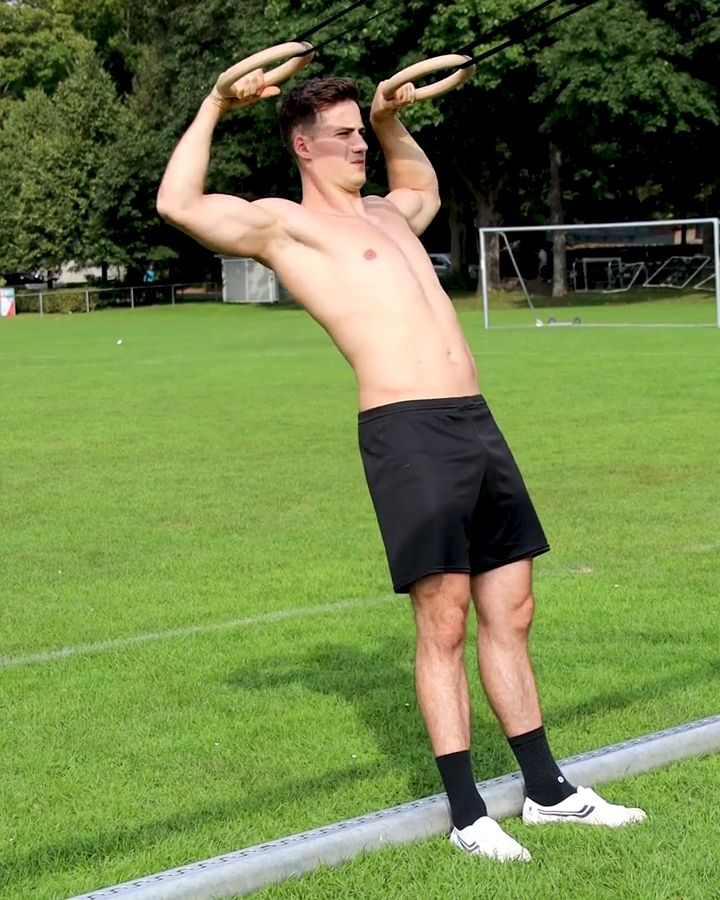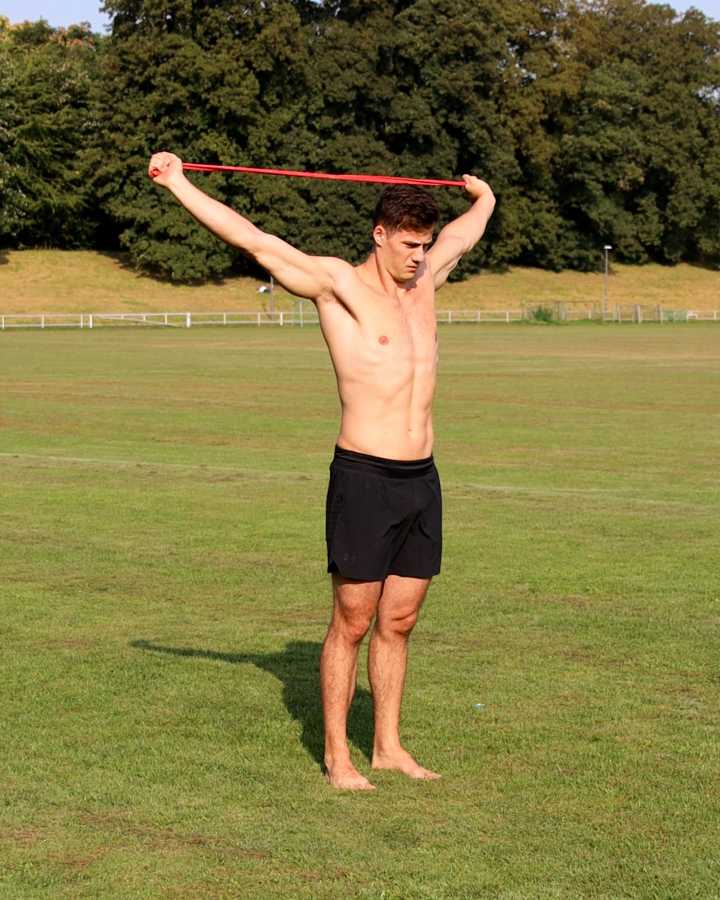Banded External Shoulder Rotations with a Band
Band external rotations are an effective exercise for strengthening the rotator cuff, especially the external rotators (infraspinatus and teres minor), which rotate the upper arm outward in the shoulder joint (away from the body center, or backward). This exercise improves shoulder joint stability and helps prevent injuries. To perform it, anchor a resistance band at a fixed point, and with a 90° bend in the elbow, rotate the arm outward while keeping the upper arm close to the body.
Band rotator training is an ideal complement to pressing exercises like shoulder presses or dips and is excellent as a warm-up before strength training or as an accessory exercise afterward. Alternatively, face pulls are also beneficial, as they similarly engage and strengthen the shoulder's external rotators.
Necessary equipment
Banded External Shoulder Rotations with a Band - the correct execution
- Secure the red resistance band at chest height to a stable post or similar anchor point
- Stand sideways to the anchor point so that your left arm is closest to the band
- Hold the band with your left hand, keeping your elbow bent at a 90-degree angle and close to your body
- Maintain a stable and upright posture, with feet about hip-width apart
- Perform the external rotation by moving your left hand outward, away from your body, without lifting the elbow from your side
- Ensure that the movement comes from the shoulder and the rest of the body remains still
- Slowly and controlled, return to the starting position
- Repeat the movement at a steady pace, focusing on proper form
The exercise Banded External Rotations is intended to be used as a mobility, warm up exercise.
Which muscles are trained by Banded External Rotations?




Primary trained muscles for Banded External Rotations
Rear Delts - The rear part of the deltoid muscle, also known as the posterior shoulder, is located at the back of the shoulder. It is responsible for the backward movement of the arm as well as external rotation. This muscle is particularly engaged during activities like rowing or pulling the arm back. The rear shoulder supports posture and helps pull the shoulder blades back, contributing to shoulder stabilization.
Similar exercises to Banded External Rotations
Banded Internal Shoulder Rotations with a band
The shoulder exercise Internal Rotations with a band is designed to specifically strengthen the rotator cuff, especially the internal rotators. This exercise trains the internal rotation of the shoulder joint against resistance, improving the strength and control of the shoulder muscles.
A similar exercise is the external rotation with a band. This exercise targets the external rotators of the shoulder (mainly the infraspinatus and teres minor muscles), which act as antagonists to the internal rotators.
Face Pulls with gym rings
Face pulls are an exercise specifically designed to strengthen the rear shoulder muscles and the upper back. By pulling towards the face and rotating the arms outward, the rotator cuff and rear deltoids are activated, which helps to build shoulder strength and prevent shoulder injuries. This exercise is particularly effective in correcting muscular imbalances in the shoulder area and can also promote better posture.
Banded Shoulder Dislocates
Arm Circles with a Band, also known as Banded Shoulder Dislocates, are a warm-up and mobility exercise that specifically targets stretching in the front shoulders and chest. As the shoulders circle, the band stays under tension, leading to an especially deep stretch in the shoulders and chest when the band is pulled behind the head. This exercise is ideal for warming up or promoting shoulder health and can be used as an alternative or addition to classic Arm Circles forward or backward without a band.
This could also be interesting
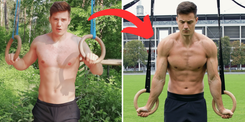
Calisthenics Body Transformation – How to Build a Strong, Lean, and Athletic Physique
Transform your body with Calisthenics! Build muscle, burn fat & achieve a shredded physique with bodyweight training. See real before & after results!

The Best Fitness Apps in 2025: Our Top 10 Recommendations
Don’t miss the best fitness apps of 2025: surprising favorites, free options, and perfect tools for your workouts. Find the ideal app today!
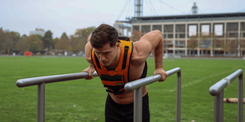
Complete Calisthenics Skills List – 40+ Exercises from Beginner to Pro
Which calisthenics skills should you learn first? And which ones will really help you progress? In this article, you’ll find a complete list of over 40 exercises – from the very basics to the toughest moves for professionals. Each exercise comes with instructions, so you can immediately integrate them into your training.
